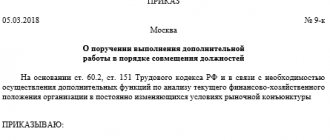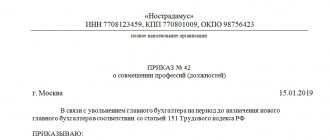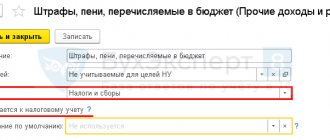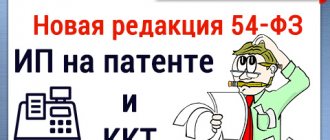The working qualifications of employees must meet strictly defined requirements - professional standards . While receiving education, the future professional must acquire a set of certain competencies, the combination of which forms the mentioned standard. Exactly the same, ideally, should be required from a specialist when applying for employment.
Why is the concept of “professional standards” needed in the modern regulatory framework? How to apply them in practice? Who will need them first? Let's try to look at this legislative innovation, which came into force in the summer of 2021.
Why are professional standards needed?
A professional standard is the name of an important fundamental document that contains a description of the following standards:
- Labor functions of the employee in accordance with his qualifications and position.
- Requirements for his experience and knowledge.
Thus, we can say that professional standards include a description of the qualitative level of qualifications of an employee, which he must meet in order to rightfully take his place on the staff of any company, regardless of the type of its activity (Article 195.1 of the Labor Code of the Russian Federation).
Download “Professional Accountant Standard”.
All professional standards are approximately the same and have a single structure (according to the order of the Ministry of Labor of Russia dated April 12, 2013 No. 147n “On approval of the Layout of the Professional Standard”).
Unlike specialized reference books on qualifications, professional standards give a clearer idea of the work functions of workers, which have absolutely accurate and detailed descriptions. Perhaps, over time, professional standards will completely replace qualification reference books as documentation that is more in line with the requirements of the current time.
Also see “Independent assessment of employee qualifications: what you need to know.”
Results
Professional standards are mandatory for all government agencies and municipal business entities, as well as for private firms that have positions that provide benefits to employees. Professional standards are established by orders of the Ministry of Labor of the Russian Federation. Their implementation both in private companies and in government agencies is carried out on the basis of Decree of the Government of the Russian Federation No. 584.
You can learn more about the implementation of professional standards in the articles:
- “Law on professional standards from 2021 - latest changes”;
- “Professional standard for occupational safety specialist.”
You can find more complete information on the topic in ConsultantPlus. Free trial access to the system for 2 days.
Professional standards and their scope of use
These standards may be applied and taken into account for the following purposes:
- to organize training and certification of employees;
- policy formation when staffing an enterprise with highly qualified personnel;
- organization of management processes;
- establishing internal tariffs for work performed;
- facilitating the classification of tariff categories;
- developing your own systems for paying working hours, taking into account the specifics of work at a particular enterprise.
Are professional standards mandatory for implementation or are they only intended to facilitate the organization of an enterprise and production? Should the employer (company owner) follow them unquestioningly, taking them as step-by-step instructions? Or does he have the right to choose the area and order of their application? Let's try to figure out these questions.
Mandatory application of standards
Paragraph three of part 2 of Article 57 of the Labor Code of the Russian Federation talks about the mandatory nature of professional standards. In particular, this provision mentions such an important document as an employment contract. Thus, if the receipt by an employee of an enterprise of special benefits, compensation or restrictions is directly related to the performance of duties inherent in a particular position, then the employer is obliged to be guided by reference books on qualifications or state professional standards.
EXAMPLE
Citizen "P" by nature of service is involved in particularly harmful and difficult work. A benefit and compensation for citizens engaged in such activities is early retirement. This means that after leaving for a well-deserved rest, an employee can count on receiving the benefits due to him, his position must be spelled out in the employment contract exactly as it is listed in the directory or professional standard. At the slightest discrepancy, the employee risks losing his legal privileges.
Therefore, it is very important to take such nuances into account and correctly draw up and fill out all the necessary documentation. If a mistake is made and this comes to light (for example, at the request of the employee himself or as a result of an ongoing audit of the enterprise), then the company’s management may be held accountable.
The Administrative Code in the 4th part of Article 5.27 provides for punishment for such criminal negligence - a large fine. Its size may vary:
- from 50 to 100,000 rubles – for an organization;
- from 10 to 20,000 – for officials;
- from 5 to 10,000 – for private entrepreneurs.
Which, however, does not relieve the former or current employee from subsequent problems with receiving all the benefits and compensation due to him for the past period.
Requirements for employees to comply with professional standards
Article 195.3 of the Labor Code of the Russian Federation regulates the use of professional standards by employers. It provides a brief but succinct definition of an employee’s qualifications. And it is explained that if the requirements for the qualifications of a worker are legally defined, then the application of the standards becomes the indisputable responsibility of the employer, and not his right.
To make it clearer, let’s look at this point using the example of the professional standard for accountants in 2021. So, in accordance with Part 4 of Article 7 of the Federal Law of December 6, 2011 No. 402-FZ “On Accounting,” the chief accountant who came to get a job (for example, in an OJSC or an insurance organization) must meet the following requirements:
- Higher education.
- Work experience in the specialty "Accounting" or "Audit" - at least 3 years out of the last five.
But is it necessary to present these requirements if an accountant gets a job in a regular LLC? What if the potential chief accountant does not have a higher education, but has valuable experience and a good track record? Let's look at the professional standard "Accountant". It follows from this that a person can be hired as an accountant with both higher and secondary education.
Therefore, we believe that higher education is mandatory for an accountant only if he plans to work in organizations included in the list given in Part 4 of Article 7 of Law No. 402-FZ (for example, in an OJSC). If not, then it will be enough to have secondary education and work experience, which are prescribed in the professional standard.
Professional standard for a teacher: application in accordance with the law
What is the professional standard of a teaching worker? The Federal Law “On Education”, as well as some other regulations, establish the following concept:
The professional standard of a teacher is a special list of requirements, with the help of which the qualification level is determined, in accordance with which the teacher qualitatively fulfills all the duties assigned to him.
Pedagogical professional standards are constantly updated and modernized. It is very important to promptly adjust this kind of documentation to new scientific and educational realities. We should not forget about the requirements for the skills of teachers, their work experience and professional knowledge. At the moment, a government program for the transition to new standards has been approved - until 2021. All necessary professional standards should be implemented gradually, in several main stages. At the same time, both the stages of implementation and the form of documentation will be determined by regional authorities - in accordance with municipal legal acts. Special commissions are assembled, which should include representatives of various professional committees.
Each organization develops its own individual plan for the transition to new standards. However, some general activities are still worth highlighting. These include:
- Clarification of pedagogical standards in each specific educational institution. The main task here is to conduct employee reconciliations and then draw up protocols.
- Carrying out inspection work. It is necessary to review all existing employment contracts and various internal organizational acts. If necessary, employees are required to make appropriate changes.
- It is necessary to check employees for compliance with standards. Thus, new professional standards in education require recertification of some employees of educational organizations.
- You need to draw up a final report and submit it to management.
Thus, the work to implement new professional standards is truly extensive. What can you tell us about the immediate responsibilities of teachers?
Improvement of employee qualifications
The employer has the right to send employees of his enterprise to retraining and advanced training courses. In accordance with Article 196 of the Labor Code, this is his right, but not his obligation. That is, he can make this decision at his own discretion, based on considerations of the feasibility of such training. Most often - to raise the company’s status in the market, its prestige and the qualifications of workers involved in work processes.
In serious and large companies, the employer and owner of the company are interested in a high level of training of employees. To verify and confirm it, international professional standards of internal auditing can be used.
Controversial point: is it necessary to study?
There are still disputes and different opinions regarding the above provisions. Some experts refer to Article 195.3 of the Labor Code (its first part), others to the same article in its second part, finding in them some discrepancies and inaccuracies that allow for a double interpretation of their meaning.
As a result, some believe that it is mandatory to apply professional standards, while others believe that they are only advisory in nature. However, both of them agree that if mandatory requirements for the qualifications of employees in a certain specialty are not established by law, then they can only be advisory in nature for the employer and nothing more. Moreover, the latter has the right to use them at his own discretion, setting more stringent or, conversely, softer requirements for employees than required by the standard.
The workers themselves also react ambiguously to professional standards. Many of them express fears that the education they received at various courses will be only formal in nature. And this was invented by legislators for only one purpose – to once again empty their wallets. After all, at the moment there is no clear definition in the law of who will pay for all this.
Assessment of employee qualifications
On June 22, the State Duma adopted in the second and third readings a package of government laws on conducting an independent assessment of the qualifications of workers and job seekers in Russia.
The law provides for the formation by associations of employers and trade unions of a system of independent assessment of qualifications for compliance with professional standards. The qualification assessment will be a professional examination, the procedure for which will be established by the government. Based on the results of the exam, a certificate of qualification is issued, and if an unsatisfactory grade was received, a conclusion on passing the professional exam, including recommendations for the applicant.
It is envisaged that a different procedure for conducting qualification assessments may be established for certain categories of workers, for whom the Labor Code will determine the specifics of labor regulation, including the performance of work under harmful or dangerous working conditions.
The qualification assessment will be voluntary for citizens, including employees and employers, and will not entail any mandatory consequences or requirements, including when hiring. The introduced provisions will not apply to candidates for civil service and current officials.
The law provides for the formation by associations of employers and trade unions of a system of independent assessment of qualifications for compliance with professional standards. The qualification assessment will be a professional examination, the procedure for which will be established by the government. Based on the results of the exam, a certificate of qualification is issued, and if an unsatisfactory grade was received, a conclusion on passing the professional exam, including recommendations for the applicant.
It is envisaged that a different procedure for conducting qualification assessments may be established for certain categories of workers, for whom the Labor Code will determine the specifics of labor regulation, including the performance of work under harmful or dangerous working conditions.
The qualification assessment will be voluntary for citizens, including employees and employers, and will not entail any mandatory consequences or requirements, including when hiring. The introduced provisions will not apply to candidates for civil service and current officials.
READ ON THE TOPIC:
The Ministry of Education and Science may postpone the introduction of the professional standard for teachers until 2019.
The National Council under the President of the Russian Federation for Professional Qualifications will become the coordinator of the system of independent assessment of qualifications.
To organize work on assessing qualifications in a certain type of activity, councils on professional qualifications will be created at the all-Russian level on the basis of an industry association of employers or associations representing professional communities. These councils will be able to select legal entities to conduct qualification assessments. Qualification assessment centers will conduct qualification assessments in the form of a professional exam and document its results.
The National Qualifications Development Agency will create a register of independent assessment of qualifications. It will contain information about councils, qualification assessment centers, information about the names of qualifications and the provisions of professional standards for compliance with which qualifications are assessed, indicating the validity periods of qualification certificates and documents required to pass a professional exam for the relevant qualifications.
Qualification assessment at the initiative of the applicant will be carried out at the expense of the applicant or other individuals and legal entities, as well as at the expense of the employer. To encourage employers and citizens to participate in the system of independent qualification assessment, it is planned to introduce appropriate amendments to the Tax Code of the Russian Federation.
An example of using professional standards for advisory purposes
Let us assume that the current legislation does not impose strict requirements for the qualifications of specialists in certain professions. Let, in our case, for clarity, it be “HR Specialist”. Therefore, the professional standards for personnel officers approved for 2020 can be applied to this position. But use them only by taking them as a basis to facilitate the preparation of documentation.
For example, taking the professional standard as a certain template, you can:
- correctly identify job titles;
- functions related to the execution of the workflow;
- set reasonable requirements for their qualifications, experience, and education.
That is, this document, in fact, acts as a foundation that allows the employer to find support points when building natural work processes in a team.
Questions of application of Art. 195.3 Labor Code of the Russian Federation
All discrepancies and interpretations of Article 195.3 of the Labor Code of the Russian Federation are associated with its relative novelty. A lot of questions arise regarding the scope of its application. Moreover, it is still not installed:
- a unified method for introducing professional standards into enterprises (plan, etc.);
- a measure of responsibility for the employer and employees who have been working in their companies for a long time, if the latter are not currently able to meet professional standards.
And it is not at all clear what to do with new potential employees who are just planning to come to work for the enterprise. The labor market is now crowded, but not everything is so simple. This does not mean at all that there is no shortage of valuable personnel. It is not always the case that a new employee with a higher education is able to replace an old one who has only a secondary vocational education behind him, but has enormous experience.
Officials of the Russian Ministry of Labor constantly receive various questions regarding the application of professional standards. Here are some questions and answers to them.
Strict adherence to professional standards
Question: Is there a need to strictly follow the requirements of approved professional standards?
Answer: Yes. The employer must keep in mind that he is obliged to strictly follow the requirements when hiring a person if we are talking about issues regulated by Articles 57 part 2 and 195.3 of the Labor Code of the Russian Federation. In other cases, all requirements are purely advisory in nature.
Mandatory professional standards in private organizations
Question: Is compliance with professional standards mandatory for private organizations? Or are they designed to streamline the work of state and municipal companies and enterprises?
Answer: Yes, definitely. The law is the same for everyone, regardless of the form of ownership and status of the enterprise and its owner.
Differences in the professional standard and qualification reference book
Question: What should you do if different requirements are specified for the same profession in the qualifications directory and in the professional standard? Which of these two documents should be used in such cases?
Answer: The right to choose in this case belongs to the employer.
Dismissal of employees
Question: Is it possible to fire an employee if it suddenly turns out that he does not meet the requirements of the professional standard? For example, does he not have a higher education and the necessary work experience, which have become mandatory under the new rules?
Answer: No, the introduction of new professional standards cannot be grounds for dismissal of previously hired employees. Employees can be dismissed only based on the results of the certification process.
Changes in job responsibilities
Question: Should workers' responsibilities automatically change with the introduction of a new occupational standard?
Answer: No, there is no automatic change in responsibilities in this case.
Changes in employment contracts
Question: Does the law oblige employers to begin rewriting employment contracts and job descriptions for their employees once the new standards come into force?
Answer: Yes, but only if the requirements of professional standards are mandatory applicable to a specific position.
Tuition payment
Question: Who should pay for advanced training and retraining courses for employees if required by the employer?
Answer: The law cannot clearly answer this question. It is necessary to decide based on the content of other internal legal documents. Raise the employment contract, various agreements, collective agreements. The employer does not have a direct obligation to pay for the professional education of employees.
Transfer to a higher position
Question: Does the employer have the right to appoint to a position a person who, according to the terms of the professional standard, does not meet it?
Answer: The employer has the right to do this. In particular, the employer can create a certification commission. She may decide that the person recommended has sufficient experience, is responsible in carrying out his duties and is fully capable of performing them. And then the employee can be transferred to a higher position.
Historical reference
A professional standard is a characteristic of the qualifications necessary for an employee to carry out a certain type of professional activity, including the performance of a certain labor function (Article 195.1 of the Labor Code of the Russian Federation).
Since 2013, on the basis of Federal Law dated December 3, 2012 No. 236-FZ “On Amendments to the Labor Code of the Russian Federation and Article 1 of the Federal Law “On Technical Regulation” and Government Decree of the Russian Federation dated January 22, 2013 No. 23 “On Rules for the Development and Approval professional standards" in the Russian Federation, professional standards are being developed for types of professional activities. Moreover, the names of positions, professions and specialties contained in the Unified Tariff and Qualification Directory of Work and Professions of Workers (hereinafter - UTKS), the Unified Qualification Directory of Positions of Managers, Specialists and Employees (hereinafter - UKS), are identical to the names of positions, professions and specialties contained in professional standards (hereinafter referred to as professional standards). What is the meaning of the parallel existence of these documents? Which document is primary: ETKS and EKS or professional standard?
The answer to the question about the application of ETKS and EKS or a professional standard if the professions (positions) of the above documents contain different qualification requirements is given in the letter of the Ministry of Labor of Russia dated 04.04.2016 No. 14-0/10/B-2253 “Answers to standard questions on the application of professional standards." The employer independently determines which regulatory legal act he uses, except for cases provided for by federal laws and other regulatory legal acts of the Russian Federation.
Regarding the first question, the Russian Ministry of Labor in the same letter announced the planned replacement of ETKS and EKS with professional standards, as well as individual industry requirements for the qualifications of workers, but such a replacement will take place over a fairly long period.
For government organizations, this period actually ends on January 1, 2021.
This period is determined by Decree of the Government of the Russian Federation dated June 27, 2016 No. 584.
From January 1, 2021, the qualification requirements required for an employee to perform a certain job function in government organizations must comply with approved professional standards.
The above resolution lists the following government organizations:
- state extra-budgetary funds of the Russian Federation;
- government agencies;
- municipal institutions;
- state unitary enterprises;
- municipal unitary enterprises;
- state corporations, state-owned companies and business entities, more than fifty percent of the shares (shares) in the authorized capital of which are state-owned or municipally owned.
Responsibility for ignoring the requirements of professional standards
Approved professional standards are very important in the social sphere. Responsibility for their failure to comply is provided for in cases where they are mandatory. Or if they are not mandatory, but the employer voluntarily accepted the obligation to follow their requirements. For example, by reflecting this decision in the company’s local regulations.
If an employer is obliged to comply with professional standards, but does not do so, then he may be held accountable on the basis of Article 5.27 of the Code of Administrative Offenses of the Russian Federation. Labor inspectorates will hold employers accountable.
Also see video on the topic of professional standards
Read also
08.06.2018
Register on the website of the Ministry of Labor
Rosmintrud is responsible for maintaining the register of already approved standards.
All information is open and available to everyone on the official portal of the department https://profstandart.rosmintrud.ru/obshchiy-informatsionnyy-blok/natsionalnyy-reestr-professionalnykh-standartov/.
For ease of searching, professional standards are grouped by industry, arranged in alphabetical order: from “Aircraft Engineering” to “Jurisprudence”.
New ones are added regularly - the list is updated as the number of standards registered with the Ministry of Justice grows. The documents are presented in a test format and are available for downloading or printing.








